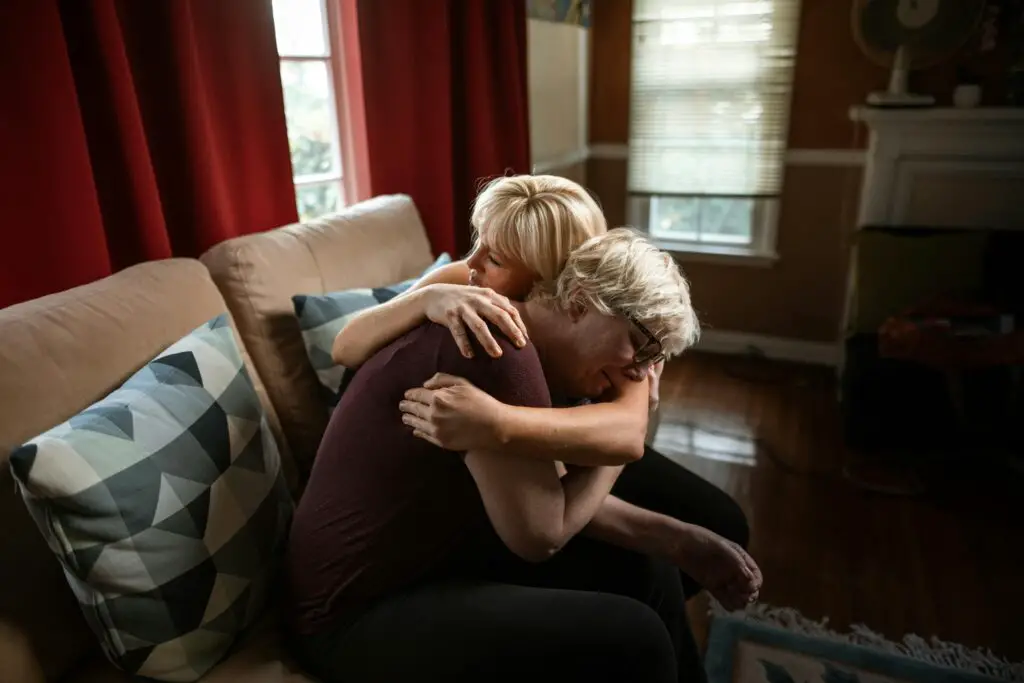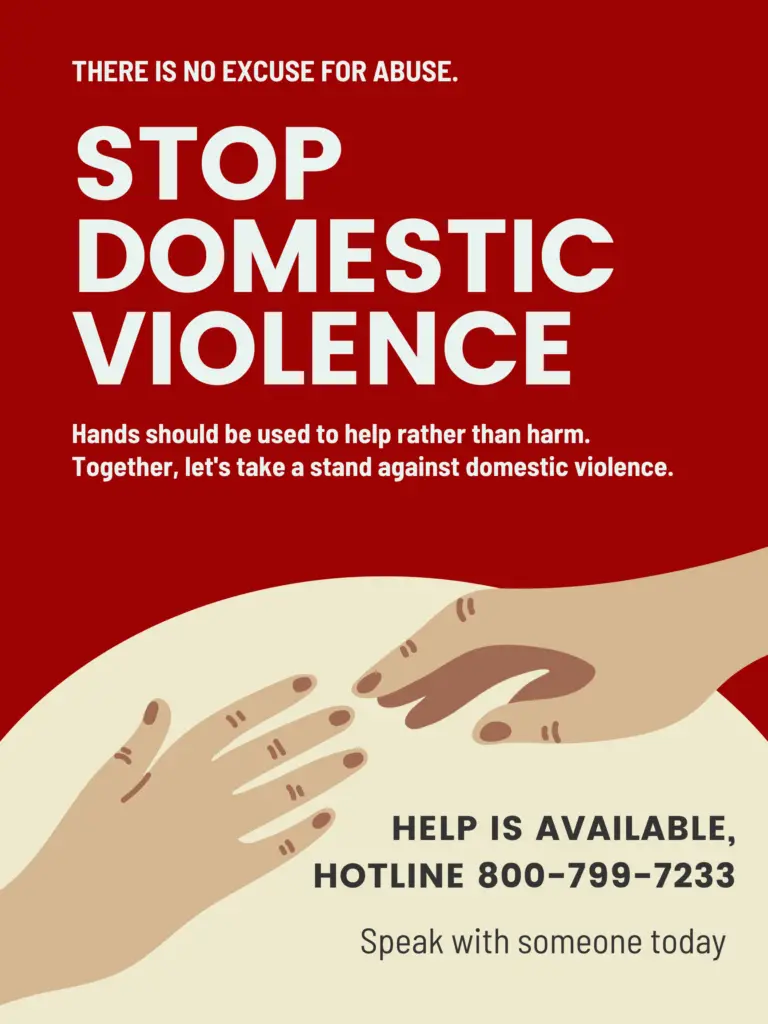It’s shockingly easy to get caught in the subtle web of being conditioned to accept abuse, especially when the signs are not as overt as we expect them to be. This conditioning can make you second-guess yourself, questioning whether what you’re experiencing is really abuse or just another normal interaction. Whether it’s through manipulation, guilt, or outright aggression, being conditioned to accept abuse leaves lasting effects that might not be visible to the outside world but are deeply felt by those experiencing it. Today, let’s break down what it means to be conditioned to accept abuse, recognize the signs, and understand how you can start your journey towards healing.

Table of Contents
The Cycle of Abuse
The cycle of abuse is like a confusing, emotional rollercoaster that’s tough to get off. It often begins with little things that might seem minor—maybe you write them off as just a bad day. But these aren’t one-offs; they soon grow into a predictable pattern where tension builds, leading to an incident of abuse, followed by a brief, misleading calm that makes you hope things might change. This sequence repeats itself, trapping you in a loop that gradually conditions you to accept abuse as normal.
You might find yourself justifying the situation each time it cycles back to calm, fooled into thinking that these moments of peace are signs that everything is really okay. This cycle is sinister because it slowly but surely trains you to expect, endure, and even normalize the abuse without realizing how deep you are in the situation.
10 Signs You Have Been Conditioned to Accept Abuse
Being conditioned to be accept abuse, it often creeps up on you, subtly weaving its way into your daily life until you may not even notice it’s there. Here are some clear indicators:
- Constant Self-Doubt: If you constantly question your own memory and perception, feeling like you can’t trust what you remember or experience, it might be a sign you’re conditioned to accept abuse. This doubting can make you feel perpetually confused and unsure about the reality of your situation.
- Fear of Confrontation: When the mere thought of an argument makes you recoil because you’re scared it could spiral into something worse, it’s a strong indication that you’ve been conditioned to avoid conflict at all costs, even when disagreement is normal and healthy in relationships.
- Justifying Bad Behavior: If you find yourself making excuses for your abuser’s actions to others or even to yourself, trying to rationalize why they did what they did, it’s a sign you’ve been conditioned to normalize their behavior, regardless of how harmful it is.
- Loss of Self-Esteem: Feeling worthless or doubting your value in all parts of life isn’t just a blow to your confidence; it’s a symptom of being worn down by abuse. When you’re conditioned to accept it, your self-esteem often takes one of the hardest hits.
- Physical Symptoms: The stress of living in an abusive environment can manifest physically, leading to anxiety, depression, and insomnia. If your body is in constant distress, it could be reacting to the prolonged exposure to an unhealthy and abusive dynamic.
- Isolation: One classic sign you’ve been conditioned to accept abuse is isolation. You might find yourself pulling away from friends and family, not entirely by your own choice but often due to the manipulations of the abuser. They may subtly or overtly push you to drop connections, leaving you feeling alone and dependent solely on them. This tactic weakens your support network and reinforces your reliance on the abuser, making it harder to seek help or escape.
- Hyperawareness of Mood Changes: Being conditioned to accept abuse can make you hypersensitive to the abuser’s moods. You might find yourself constantly on edge, trying to read their emotional state to avoid conflicts or abuse. This heightened state of alertness is exhausting and can make you feel like you’re always walking on eggshells, trying to maintain peace at any cost.
- Feeling Trapped: Another distressing sign is feeling trapped. You might believe that you can’t leave the abusive situation due to various constraints like finances, fear of what might happen if you leave, or emotional attachment. This sense of entrapment is often a direct result of being conditioned to think there are no viable options outside of the current relationship.
- Ignoring Your Needs: If you find that your own needs and desires are consistently being sidelined for the sake of the abuser, it’s a clear indicator of being conditioned to accept abuse. You may put the abuser’s wants before your own, often neglecting your well-being and happiness in the process.
- Believing It’s Normal: Perhaps the most profound sign of being conditioned to accept abuse is believing that such dynamics are normal. You might convince yourself that all relationships function this way and that the abuse is just a standard part of life. This acceptance can make it difficult to recognize the need for change and seek the necessary help.
Getting The Help You Need
Realizing you’re showing signs of being conditioned to accept abuse is a massive first step in breaking free from the cycle. I know it’s tough, especially when you’ve learned to downplay your own suffering. Reaching out for help might feel overwhelming, but trust me, it’s absolutely crucial. Help is available in various forms—whether it’s one-on-one counseling, group support sessions, leaning on trusted friends, or confiding in family members. Don’t overlook online therapy, either. It’s a fantastic option that brings professional support right to your fingertips, offering you the flexibility to manage your healing process from the safety and comfort of your home. No matter the method, the important thing is to start somewhere and keep moving forward.

Conclusion
Realizing that you’ve been conditioned to accept abuse marks a crucial turning point—it’s both a testament to your resilience and a beacon of hope for reclaiming your life. Let’s be clear: snapping out of this cycle isn’t something that happens instantly. It’s a journey that involves patience, self-compassion, and often a bit of help. Don’t hesitate to reach out for that help. Every small step forward is a victory.
It’s not about getting everything perfect right off the bat; it’s about making consistent progress. As you move forward, you’ll find that each step not only distances you from the past but also builds a stronger, more empowered version of yourself. Remember, you’re not alone in this journey, and it’s perfectly okay to lean on resources and people who can support you along the way.
FAQ
Which are the three main warning signs that someone may be an abuser?
When trying to pinpoint if someone may have abusive tendencies, keep an eye out for these three major red flags: a deep-seated need for control over others’ lives, rushing into relationships too quickly, and holding unrealistic expectations of their partner. These behaviors often reveal a person’s underlying desire to dominate and manipulate, which are cornerstones in the dynamic of abuse. Recognizing these signs early can help individuals avoid getting entangled in abusive relationships or identify when they’re being conditioned to accept abuse.
What is the reactive abuse theory?
The reactive abuse theory explains how victims of abuse might lash out in moments of intense stress. This reaction is normal under such high-pressure and threatening situations. However, abusers exploit these reactions by using them to justify their own abusive behavior or to flip the script—painting the victim as the instigator. This manipulation tactic further traps the victim by making them question their own actions and feel guilty, thereby deepening the cycle of abuse and conditioning them to accept further mistreatment as something they provoked.
